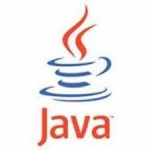
Oracle has announced that the end-of-life (EOL) of Java SE 6 has been moved from November 2012 to February 2013. This is to give organizations small and large more time to transition to Java SE 7. This is the second EOL extension given to Java SE 6, the original EOL date being July 2012. The last publicly available release of Java SE 6 will be in February 2013 with the release of Java SE 6u37.
The Java EOL policy supports Java SE major releases for at least: (a) 3 years after it has been made generally available, (b) 1 year after a subsequent major release, (c) six months after a subsequent major release has been established as the default JRE for end-user desktops on java.com. Oracle will post an EOL notice for each major release well in advance, and no new downloads of that release will be made publicly available once it reaches EOL.
In December 2012, Oracle will start to auto-update a sample of users from JRE 6 to JRE 7 to evaluate the auto-update mechanism, user experience and seamless migration. Oracle will then start auto-updating all Windows 32-bit users from JRE 6 to JRE 7 with Java SE 7u9 on February 2013. Java auto-updates are non-silent upgrades, and will request for the user’s permission before installation. This will run only on Windows 32-bit systems, so other operating systems will need to be updated manually.
For companies who need Java SE 6 support and patches after February 2013, Oracle offers Premier Support for Java SE. This includes 24×7 email and phone support and access to secure versions of older releases of Java SE. Developers and administrators who need to download older Java SE versions for testing and debugging can download them from the Java Archive. These are not updated with the latest security patches and are not recommended for production use.
